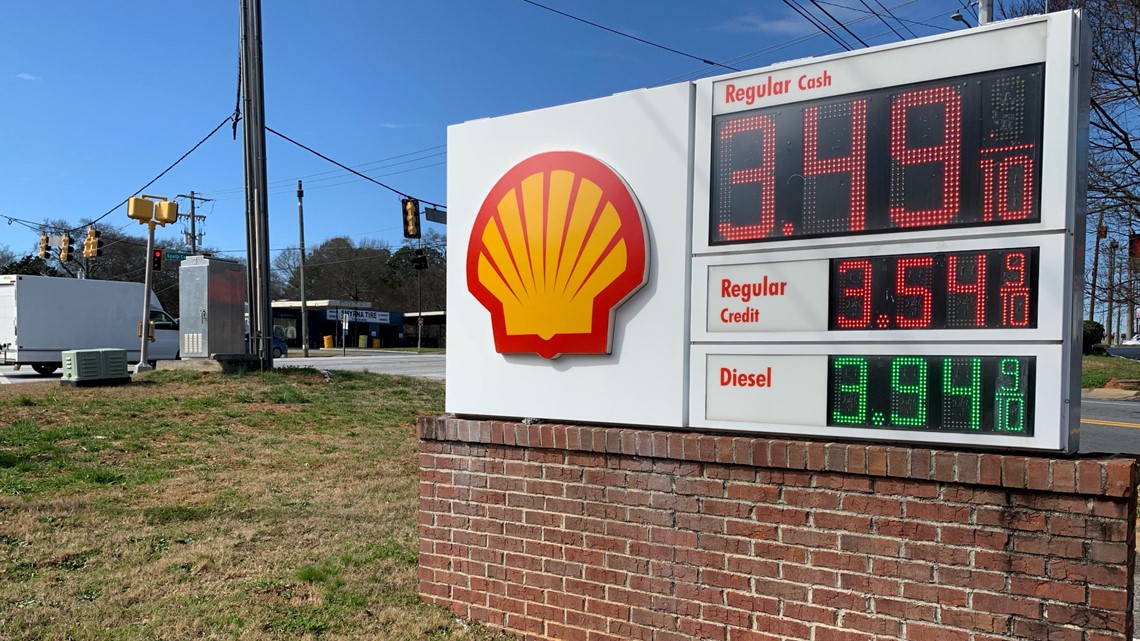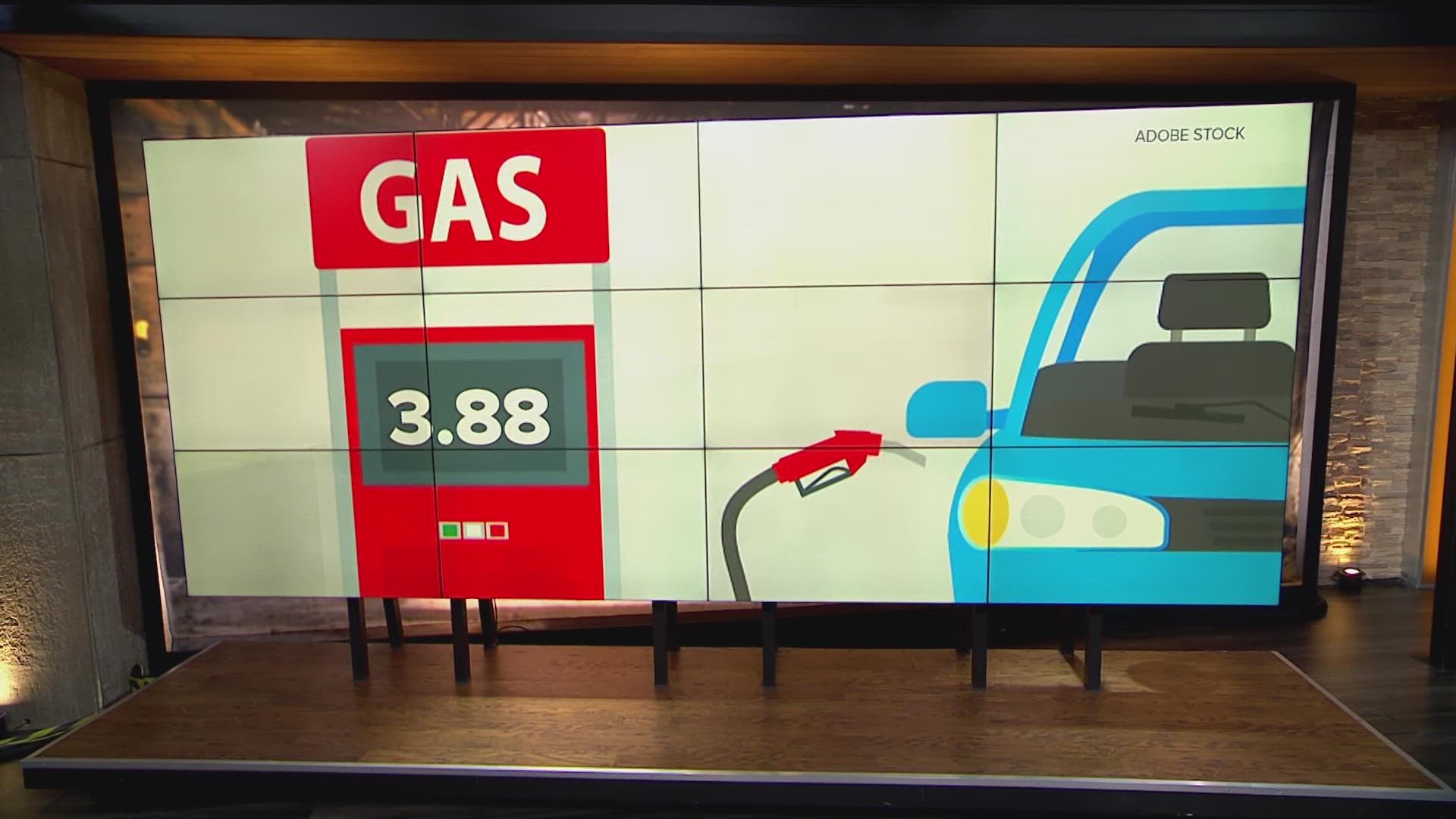ATLANTA — With President Joe Biden announcing a ban on Russian oil imports, many experts and observers anticipate a further rise in gas prices that have already been ballooning since Vladimir Putin launched a war against Ukraine.
Perhaps surprisingly, though, GasBuddy expert Patrick De Haan told 11Alive's Christie Diez earlier Tuesday that this latest step probably won't produce as sharp a spike.
That's because, he said, Russian oil isn't all that important to the American market and vice versa - American consumption isn't all that important to Russian output.
But if Europe - which is a huge customer for Russian oil - were to cut off how much it imports, then we might see a major price hike.
That dynamic gives a little bit of a window into why gas prices rise and fall as they do.
Why do gas prices go up?
As the U.S. Energy Information Administration notes, the original price of oil - before it's refined for the gas station - is largely a matter of global supply and how much people currently need that supply (the demand).
"Retail gasoline prices are mainly affected by crude oil prices and the level of gasoline supply relative to gasoline demand," the U.S. EIA site says. "Strong and increasing demand for gasoline and other petroleum products in the United States and the rest of the world can place intense pressure on available supplies."
If the U.S. and allies work to restrict how much Russian supply is being sold on the international market, that means the price for the remaining oil goes up, and eventually, the price at the pump.
The U.S. EIA website states: "Gasoline prices can change rapidly if something disrupts crude oil supplies, refinery operations, or gasoline pipeline deliveries. Even when crude oil prices are stable, gasoline prices fluctuate because of seasonal changes in demand and in gasoline specifications."
In this case, the war in Ukraine and the international response against Russia could have a substantial disruption effect on global supply.


How do gas stations set their prices?
That still doesn't explain why gas prices can fluctuate wildly from place to place even within just one metro area like Atlanta.
According to the National Association for Convenience & Fuel Retailing, the vast majority of gas stations are not owned by an oil or refining company.
That means individual owners or ownership groups are impacted by factors such as fuel type (brand-name gas, like Chevron, costs more), deliveries (direct deliveries from refiners cost more), contracts they may have with refiners and how much fuel they're buying (purchasing in bulk comes cheaper).
External factors, such as taxes that vary between states and regulations can add to the price.
California has much higher gas prices than Georgia, for instance, in part because their sales tax on gasoline is quite a bit higher than Georgia's.
Clean air standards - such as an Environmental Protection Agency rule requiring cleaner, more expensive reformulated gas in higher-smog cities - also factor in. Again, using California as an example, that state requires a cleaner form of gasoline than Georgia does, creating an imbalance in price.

